Charlie Munger
Critical Thinking Skills & Mental Models
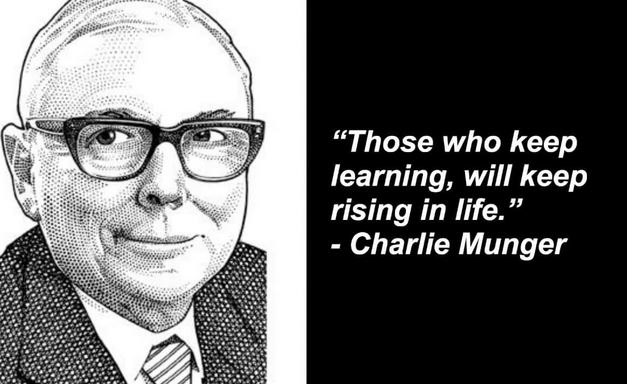
Charlie Munger, is probably best known as the Vice Chairman of Berkshire Hathaway, Inc and long term business partner of Warren Buffett.
Aside from his extremely successful business career as an investor and his various philanthropic ventures, Charlie Munger is also well known for his thinking skills and especially for his emphasis on developing multiple mental models to cut through complexity and make good judgement calls and good decisions.
He is incredibly well read and has studied many disciplines other than business such as psychology, history, biology physics and economics.
Like all of us, Charlie Munger has had his share of personal setbacks, an early divorce in era when divorce carried enormous social stigma, severe financial setbacks, the death of his son at the age of 9, cataracts when he was 52 followed by failed surgery which led to blindness in his left eye and the removal of that eye.
His insights on life in general and business in particular are extremely perceptive, and frequently correct with an uncommon consistency.
In this article we are going to be looking at some of the core principles of his thinking skills so that we can adopt them and incorporate these principles into our toolkit of thinking skills as we learn how to think more effectively.
“It is remarkable how much long-term advantage people like us have gotten by trying to be consistently not stupid, instead of trying to be very intelligent.”
Charlie Munger - Mental Models
How to think effectively? According to Charlie Munger:
“...developing the habit of mastering the multiple models which underlie reality is the best thing you can do.”
Munger is referring here to mental models.
Two broad categories of mental models that are particularly useful are those that help us understand how :
[1] The world works and thus to predict the future.
[2] Our mental processes can lead us astray via cognitive biases.
Our world is multi-dimensional and our problems are complex. Most problems cannot be solved using one model alone, thus it follows that the more models you have in the toolkit, the better equipped you will be to solve your problems because you can look at the problem from a variety of perspectives and increase the odds that you will come to a better solution.
Understand and apply: Mental Models
Understand the power of building a: Latticework of Mental Models
Charlie Munger on: How To Prioritise Learning Mental Models
Charlie Munger - The "Lollapalooza Effect"
The learning and applying of models is not enough, we also need to understand how they interact and combine, and most notably when autocatalysis or [as Charlie Munger calls it] the lollapalooza effect occurs.
The lollapalooza effect occurs when two or more forces are all operating in the same direction and often you don’t get just simple addition but rather you get a nuclear explosion once you reach a certain point of interaction between those forces such as a breakpoint or critical-mass is reached.
In the field of psychology the phenomenon wherein different biases layer and interlock with one another is the "Lollapalooza effect." It occurs when multiple different tendencies and mental models combine to act in the same direction. This makes them especially powerful drivers of behavior, and can lead to both positive and negative results.
The lollapalooza effect can cause huge negative effects but it can also cause massively positive trade-offs. So, understanding the interconnectedness of the models is critical.
Munger stated that while psychologists have been good at identifying individual biases, they are less good at figuring out how they interact and manifest in the real world, because it is difficult to run controlled experiments in that environment. At the 2017 Daily Journal annual meeting, he said:
"The psychology people couldn't do experiments that were four or five things happening at once because it got too complicated for them and they couldn't publish. So they were ignoring the most important thing in their own profession. And of course the other thing that was important was to synthesize psychology with all else. And the trouble with the psychology profession is that they don't know anything about 'all else.'"
For further reading: Lollapalooza Effect
The Lollapalooza effect: What are the mental models for success?
Latticework of Mental Models: Lollapalooza Effect
Charlie Munger - Cognitive Biases: The Psychology of Human Misjudgment

- Charlie Munger's list of: Standard Causes of Human Misjudgment
Charlie Munger - Five Simple Notions that Solve Problems
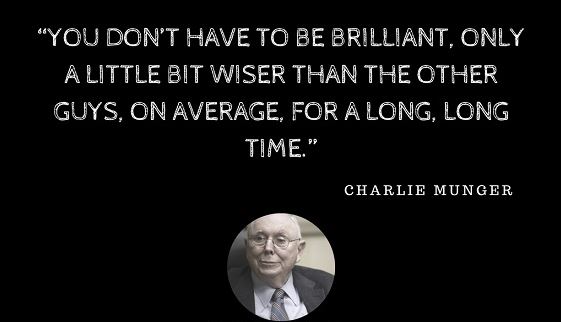
In 1996, Charlie Munger gave a talk titled "Practical Thought about Practical Thought". He started the speech by outlining five simple notions that help him quickly solve problems:
1. Simplify
"… it is usually best to simplify problems by deciding big 'no-brainer' questions first..."
2. Numerical Fluency
"Without numerical fluency, in the part of life most of us inhabit, you are like a one-legged man in an ass-kicking contest."
3. Invert
"Inverting the problem won’t always solve it, but it will help you avoid trouble. Call it the avoiding stupidity filter.
… it is not enough to think problems through forward. You must also think in reverse..."
4. Study The Basics
You need to understand the big nuggets of wisdom in the three buckets of useful knowledge.
Munger believes in using these regularly and in combination:
"You
must think in a multidisciplinary manner...You must routinely use all
the easy-to-learn concepts from the freshman course in every basic
subject. Where elementary ideas will serve, your problem solving must
not be limited, as academia and many business bureaucracies are limited,
by extreme balkanization into disciplines and subdisciplines, with
strong taboos against any venture outside assigned territory..."
5. Lollapalooza Effects
And you need to watch out for when really big ideas combine.
"… really big effects, lollapalooza effects, will often come only from large combinations of factors..."
The Charlie Munger Two Step Process To Making Decisions
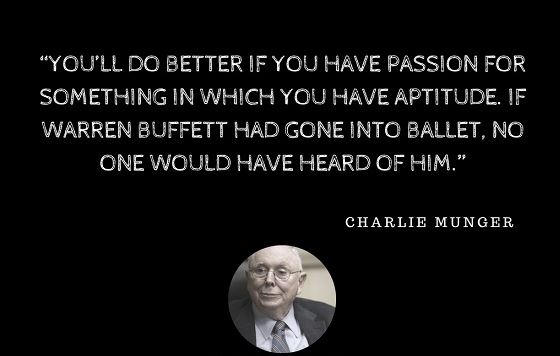
1. The Forces at Play
The key to the first step is: knowing what you know and what you don’t know.
To paraphrase Donald Rumsfelt: There are the "known knowns", the "known unknowns" and then there are far more troubling "unknown unknowns".
Charlie Munger says:
"You need to understand your circle of competence.
If you know what you don’t know, you might still have to make a decision, but your approaches for making that decision will change.
For example, if you’re forced to make a decision in an area that you know is well outside your circle of competence, one tool you can use is inversion.
While there are millions of factors that go into decisions, there will always be a few variables and factors that will carry the bulk of the weight.
To make consistently good decisions, you need to develop a deep fluency in the area in which you are making decisions, and you need to pull in the big ideas from multiple disciplines to make sure you’re exercising good judgment."
2. The Psychological Factors
There are many causes of human misjudgment, most of these are unconscious to us. Please see "Standard Causes of Human Misjudgment" above.
Further reading: The Munger Two Step Process
This mini-documentary tells the story of Charlie Munger's life and how he went through the great depression, made millions in real estate, and how he helped Warren Buffett build Berkshire Hathaway.
"So there’s an iron rule that just as you want to start getting worldly wisdom by asking why, why, why; in communicating with other people about everything, you want to include why, why, why. Even if it’s obvious, it’s wise to stick in the why."
Return from "Charlie Munger" to: How To Think
LATEST ARTICLES
The Battle For Your Mind - How To Win Inner Freedom In A Digital Age Of Distraction
 From External Events to Inner Events. We often think of “events” as things that happen out there: the traffic jam, the rude comment, the delayed email reply. But what truly shapes our experience is wh…
From External Events to Inner Events. We often think of “events” as things that happen out there: the traffic jam, the rude comment, the delayed email reply. But what truly shapes our experience is wh…How to See Your Thoughts Without Becoming the Story
 A Practical Guide to Thought-Awareness. You can spend your life inside the stories of your mind without ever learning how to see your thoughts clearly and objectively. Most of the stuff we tell oursel…
A Practical Guide to Thought-Awareness. You can spend your life inside the stories of your mind without ever learning how to see your thoughts clearly and objectively. Most of the stuff we tell oursel…The Collison Decision Matrix - A Simple Framework for Better Choices
 The Collison Decision Matrix Is A Practical Everyday Thinking Tool. Most of us spend a surprising amount of time worrying about decisions. From small ones such as what to wear, what to eat, what to te…
The Collison Decision Matrix Is A Practical Everyday Thinking Tool. Most of us spend a surprising amount of time worrying about decisions. From small ones such as what to wear, what to eat, what to te…The Power Of Asking The Right Question
 The Power Of Asking The Right Question Lies In The Quest For Insight. To experience the power of asking the right question you must develop the practice of asking questions. The best way to improve th…
The Power Of Asking The Right Question Lies In The Quest For Insight. To experience the power of asking the right question you must develop the practice of asking questions. The best way to improve th…Site Pathways
 Here is a site pathway to help new readers of Zen-Tools navigate the material on this site. Each pathway is based around one of the many key themes covered on this site and contain a 150 word introduc…
Here is a site pathway to help new readers of Zen-Tools navigate the material on this site. Each pathway is based around one of the many key themes covered on this site and contain a 150 word introduc…How To Live With Contradiction - Beyond Thought Let Stillness Speak
 A major impact on so many peoples' lives is the situational contradiction of unfilled realistic expectations. So where does all this leave us? Well here we are, with mental equipment that is more lim…
A major impact on so many peoples' lives is the situational contradiction of unfilled realistic expectations. So where does all this leave us? Well here we are, with mental equipment that is more lim…How To Trust The Process Of Mindfulness - Right Now
 In mindfulness, the process isn’t some distant goal — it's what is happening right now. When we talk about how to trust the process of mindfulness the credibility of the process is heavily dependent…
In mindfulness, the process isn’t some distant goal — it's what is happening right now. When we talk about how to trust the process of mindfulness the credibility of the process is heavily dependent…Inner Mastery For Outer Impact - Mental Clarity For Effective Action
 Insights only matter if they translate into consistent action. In a world crowded with quick fixes and motivational soundbites, the theme “Inner Mastery for Outer Impact” calls us to something more e…
Insights only matter if they translate into consistent action. In a world crowded with quick fixes and motivational soundbites, the theme “Inner Mastery for Outer Impact” calls us to something more e…The Wise Advocate - Helping You Achieve The Very Best Outcome
 The focus of your attention in critical moments of choice either builds or restricts your capacity for achieving the best outcome. When we talk of 'The Wise Advocate' its easy to think of the consigl…
The focus of your attention in critical moments of choice either builds or restricts your capacity for achieving the best outcome. When we talk of 'The Wise Advocate' its easy to think of the consigl…Trust The Process - Beyond The Cliche
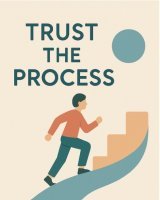 The phrase "trust the process" has become a cliche, the woo-woo mantra of the "self help" industry. Those three little words feel like they ought to mean something useful but hidden behind them are a…
The phrase "trust the process" has become a cliche, the woo-woo mantra of the "self help" industry. Those three little words feel like they ought to mean something useful but hidden behind them are a…The Dopamine Delusion - Why Anticipation Beats Achievement
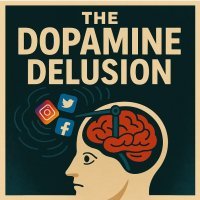 The thrill we feel is not in the having, but in the wanting. The more we have, the more we want. The more things we acquire and the easier things get for us, the more discontent we feel. The more spo…
The thrill we feel is not in the having, but in the wanting. The more we have, the more we want. The more things we acquire and the easier things get for us, the more discontent we feel. The more spo…The Power Of Silence Is Experienced In Your Use Of Language
 Practise the "Beneficial Neurological Delay" for optimal comprehension. The power of silence is experienced in your use of language, specifically: - How you formulate the words you use to think and in…
Practise the "Beneficial Neurological Delay" for optimal comprehension. The power of silence is experienced in your use of language, specifically: - How you formulate the words you use to think and in…